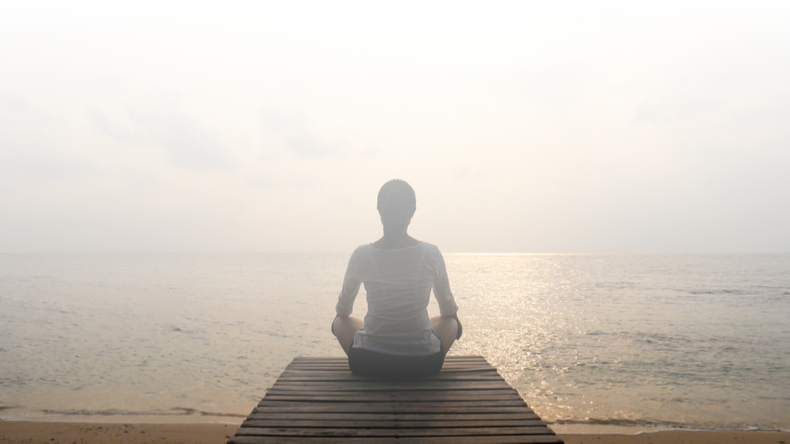
Finding Oneself
through meditation, enquiry, & chanting
Self-enquiry

Self-enquiry and meditation are different approaches that perfectly complement and support each other. The daily practice of meditation cultures the attention to be drawn inward to quietness and stillness, and to focus on the abstract and unbounded. Self-enquiry utilizes that focusing ability to explore our own sense of self and discover that our own existence has no limits. It’s a bit like lab work and scientific theory working together.
We might find that our sense of self was only a mental construction that existed for convenience in daily life but was not founded on any evidence base. The more we enquire, the more it becomes clear that we are consciousness itself, not divided into parts or undergoing change. Realising the truth that we are nothing but changeless awareness brings stability and natural order into our life. We discover our inherent freedom beyond thought without being preoccupied and encumbered with ideas that revolve around an imagined separate and limited self. Our experience of life may go from feeling helplessly stuck in a solid raft of thoughts, into being relieved to find we are content in our own centre, with the mind relaxing into its role as our servant instead of dominating our life.
Self-enquiry consists of considering deeply who we are. It comes to us from the ancient Indian Vedanta - a variety of ancient texts and active traditions. As well as bringing us mantras and meditations including TM, Vedanta also includes the perspective of Advaita, which declares the unity of all things as one self. It is taught through the process known as self-enquiry. There is no formal meditation practice: the teaching is dialogue based, and is about recognising how the mind works and how to identify misconceptions that may lead to a sense of separation - and the unnecessary suffering that can result.
